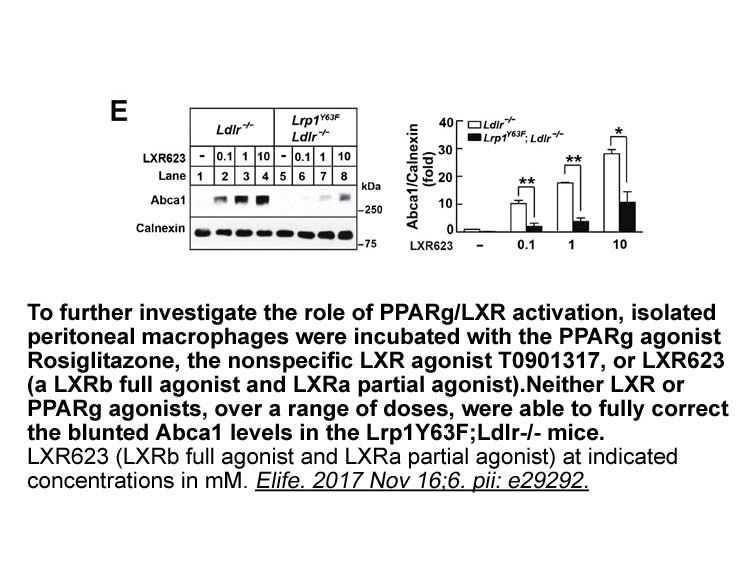Archives
In addition we aimed to examine the possible role
In addition, we aimed to examine the possible role of adiponectin in modulating changes in IR. It was observed that there was a simultaneous decline in expression of IR and AdipoR1 proteins in the ovary of PCOS-mice as compared to the control ovary. Further, a strong correlation was found between changes in rate of expression of AdipoR1 and IR proteins in P COS-ovary. The ovary of PCOS-mice when treated in vitro with the two different doses of adiponectin showed significant increase in expression of AdipoR1 and IR proteins as compared with the untreated PCOS-ovary. This finding is compatible with previous reports showing low circulating adiponectin level linked to the development of insulin resistance in PCOS women [28] whereas the treatment with adiponectin significantly increases insulin receptors in PCOS-ovary. Thus, the treatment with adiponectin may reverse insulin resistance condition in the PCOS-ovary, which plays a crucial role in the etiology of PCOS.
Efforts were made to study the effect of adiponectin with or without LH on in vitro changes in steroid synthesis as well as on IR level in the ovary of PCOS-mice. Treatment with LH alone to PCOS-ovary showed significant increase in T and moderate increase in prostaglandin receptor synthesis as compared with the untreated PCOS-ovary. This suggests that LH potentiate the hyperandrogenic activity of PCOS-ovary by LH-induced significant increase in expression of LH-R and STAR proteins. Treatment of adiponectin either alone or together with LH to PCOS-ovary caused inhibitory effect on synthesis of T and E2 together with significant decline in the expression of steroidogenic markers, LH-R, STAR and 3β-HSD proteins. Thus adiponectin can override the effect of LH in suppressing androgen synthesis by PCOS-ovary. The treatment with LH alone to PCOS-ovary showed significant decrease in expression of IR and AdipoR1 proteins compared to untreated PCOS-ovary. This observation suggests that LH suppresses the effect of adiponectin resulting in decreased expression of IR in PCOS-ovary. Whereas, exogenous treatment with adiponectin with or without LH to the PCOS-ovary in vitro showed significant increase in expression of IR protein signifying increase in insulin sensitivity. Thus, even in presence of high LH, adiponectin treatment may improve hyperandrogenism and restore IR in PCOS-ovary.
COS-ovary. The ovary of PCOS-mice when treated in vitro with the two different doses of adiponectin showed significant increase in expression of AdipoR1 and IR proteins as compared with the untreated PCOS-ovary. This finding is compatible with previous reports showing low circulating adiponectin level linked to the development of insulin resistance in PCOS women [28] whereas the treatment with adiponectin significantly increases insulin receptors in PCOS-ovary. Thus, the treatment with adiponectin may reverse insulin resistance condition in the PCOS-ovary, which plays a crucial role in the etiology of PCOS.
Efforts were made to study the effect of adiponectin with or without LH on in vitro changes in steroid synthesis as well as on IR level in the ovary of PCOS-mice. Treatment with LH alone to PCOS-ovary showed significant increase in T and moderate increase in prostaglandin receptor synthesis as compared with the untreated PCOS-ovary. This suggests that LH potentiate the hyperandrogenic activity of PCOS-ovary by LH-induced significant increase in expression of LH-R and STAR proteins. Treatment of adiponectin either alone or together with LH to PCOS-ovary caused inhibitory effect on synthesis of T and E2 together with significant decline in the expression of steroidogenic markers, LH-R, STAR and 3β-HSD proteins. Thus adiponectin can override the effect of LH in suppressing androgen synthesis by PCOS-ovary. The treatment with LH alone to PCOS-ovary showed significant decrease in expression of IR and AdipoR1 proteins compared to untreated PCOS-ovary. This observation suggests that LH suppresses the effect of adiponectin resulting in decreased expression of IR in PCOS-ovary. Whereas, exogenous treatment with adiponectin with or without LH to the PCOS-ovary in vitro showed significant increase in expression of IR protein signifying increase in insulin sensitivity. Thus, even in presence of high LH, adiponectin treatment may improve hyperandrogenism and restore IR in PCOS-ovary.
Acknowledgements
Anusha Singh highly acknowledges financial assistance from UGC, New Delhi. This work was also supported by Centre of Advanced Study in Zoology, Banaras Hindu University, Varanasi, India. The authors declare that there is no conflict of interest that could be perceived as prejudicing the impartiality of the research reported.
Introduction
One out of three people develop cancer and one out of five die from cancer (Futreal et al., 2001). According to Cancer Research UK (WH Organization, 2015), “1 in 20 cancers are linked to weight.” Obesity is becoming more prevalent in both developing and developed countries and has been linked to a number of diseases, especially several cancer types (Nock and Berger, 2010, Obeid and Hebbard, 2012). Pan et al. (2004), investigated the link between cancer and obesity within Canada. The study focused on the comparison of normal-weight individuals (BMI less than 25kg/m2) with obese persons with respect to 19 types of cancers. It was found that those who were obese had a higher chance of getting cancer. Rapp et al. (2005) observed in Austrian population, that obesity was found to have positive links to several types of cancers including colorectal cancer (CRC), ovary, breast, prostate, and certain hematopoietic cancers, with men being more susceptible to acquiring both colon and prostate cancer (PC) and women to developing breast cancer. Existing data from the American Cancer Society mortality study suggests an increased cancer death rate due to increased body weight (Siegel et al., 2016). Recent evidence indicates that obesity is one of the seven major factors for death in the United States (Calle and Thun, 2004).